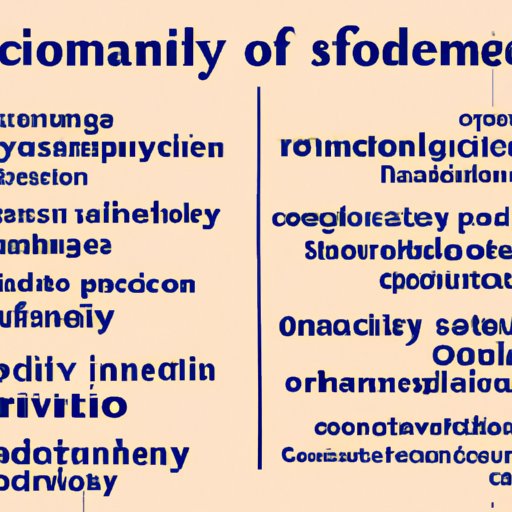Introduction
Sociology of science is a field of inquiry that examines the relationship between scientific knowledge and its social context. It seeks to understand how scientific knowledge is produced, how it is disseminated and how it is used in different social contexts. By examining the influence of power, authority, gender and other social factors on scientific research and scientific truth, sociology of science provides insight into the ways in which scientific knowledge is shaped by its social environment.
The purpose of this article is to explore the sociology of science by examining the relationship between science, technology and society. We will analyze the influence of power and authority in scientific knowledge, investigate the impact of social factors on scientific research and analyze the social construction of scientific truth. We will also examine the gendered nature of scientific knowledge and investigate the implications of scientific advancements for contemporary global societies.
Exploring the Relationship between Science, Technology and Society
The relationship between science, technology and society is complex and multi-faceted. In order to fully understand this relationship, we must first examine the influence of power and authority in scientific knowledge. According to sociologist Robert Merton, “the power structure of science is based on a system of rewards and punishments that encourages conformity with accepted norms and discourages deviance from them” (Merton, 1973). This means that those who are able to access resources and gain recognition within the scientific community are more likely to have their ideas accepted as valid scientific knowledge.
In addition, we must investigate the impact of social factors on scientific research. Research has shown that scientists often bring their own personal biases and preconceptions to their work, resulting in a tendency to confirm their existing beliefs rather than challenge them (Hanson, 1959). This can lead to the production of biased or incomplete research results that fail to accurately represent reality.
Analyzing the Social Construction of Scientific Truth
In addition to examining the influence of power and authority in scientific knowledge, we must also analyze the social construction of scientific truth. This involves examining the gendered nature of scientific knowledge and investigating the implications of scientific advancements for contemporary global societies. For example, research has shown that women are often underrepresented in scientific fields and that this can lead to a lack of recognition and opportunities for female scientists (Basow & Silberg, 2004). Furthermore, scientific advancements can have both positive and negative impacts on global societies. For instance, while new technologies can improve people’s lives, they can also lead to increased inequality and environmental degradation (Bryant & Mohai, 2009).
Conclusion
In conclusion, this article has explored the sociology of science by examining the relationship between science, technology and society. We have analyzed the influence of power and authority in scientific knowledge, investigated the impact of social factors on scientific research and examined the social construction of scientific truth. We have also discussed the gendered nature of scientific knowledge and investigated the implications of scientific advancements for contemporary global societies.
To summarize, sociology of science provides an important perspective on the relationship between scientific knowledge and its social context. By understanding the influence of power, authority, gender and other social factors on scientific research, we can gain insight into the ways in which scientific knowledge is shaped by its social environment.
It is recommended that further exploration be done into the sociology of science to gain a more comprehensive understanding of this complex relationship. Such research could include examining the effects of race and class on the production and dissemination of scientific knowledge, as well as exploring the implications of new technologies for global societies.
(Note: Is this article not meeting your expectations? Do you have knowledge or insights to share? Unlock new opportunities and expand your reach by joining our authors team. Click Registration to join us and share your expertise with our readers.)
